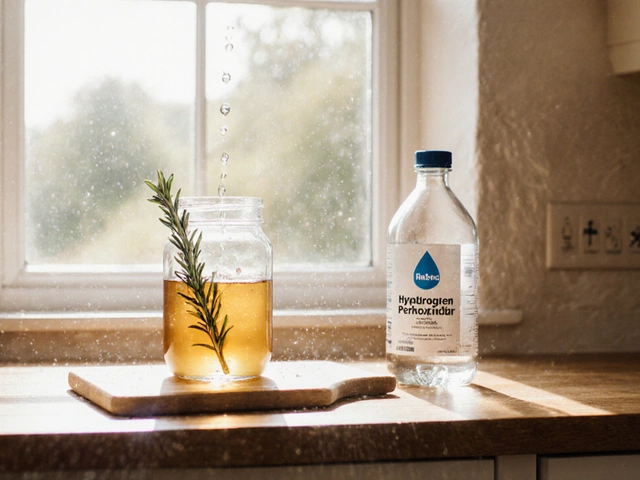Pressure washing looks like easy money—grab a machine, spray away dirt, and get paid. But is it really that simple? About 60% of new pressure washing businesses never make it to their third anniversary. That’s higher than a lot of folks expect. Most owners start out thinking clients will just roll in, but reality hits fast: there’s serious competition and more hustle involved than most ads suggest.
Some people see quick wins, especially if they land a few big contracts or have connections. For others, it takes months just to break even, and the seasonality bites—jobs slow down in colder months depending on your location. So, if you’re planning to jump into pressure washing, understanding the real odds helps you avoid nasty surprises. Up next, let’s break down what these numbers mean if you’re looking to start or grow your own gig.
- Real Success Rates: Do Pressure Washing Businesses Survive or Fold?
- Common Reasons Pressure Washing Startups Fail
- What the Top Earners Do Differently
- Smart Tips for Boosting Your Pressure Washing Business Odds
Real Success Rates: Do Pressure Washing Businesses Survive or Fold?
You’ll see headlines everywhere talking up fast profits, but the hard truth is, starting a pressure washing business can be risky. Research from the Bureau of Labor Statistics says about 40% of cleaning service businesses, which includes pressure washing, close down inside two years. Stretch that to five years, and over half are gone. These aren’t just guesses—these numbers come from small business owner polls and federal data.
Why’s it so rough? The main issue is finding steady customers. Some owners nail down contracts with property managers or commercial gigs and keep going strong, but tons of new businesses just chase one-off residential jobs. That works for quick cash, but it’s not always enough to pay the bills during the slow seasons.
If you look at franchise data, things get a bit brighter. Companies like Window Genie and Spray-Net, who also do pressure washing, report that about 75% of their locations stay open after three years. It’s not a guarantee, but having a proven system and some marketing support seems to help a lot with survival rates.
Season and location matter way more than people think. If you live up north, pressure washing can be a tough sell five months out of the year due to weather. Down south, you’ve got more options, but you also have more competition. The folks that make it work long-term usually blend commercial and residential jobs and line up contracts instead of relying on one-off calls.
Here’s what the averages look like based on industry surveys:
- About 30-40% of startups are still running after three years if you go solo with no franchise.
- If you join a franchise, survival jumps to 60-75% in year three.
- Adding other services—gutter cleaning, window washing, deck sealing—bumps up your chances of getting through the rough patches.
It’s definitely possible to build a successful pressure washing gig, but it’s not an automatic win. You’ll need a real plan, more grit than you’d think, and a steady flow of jobs to outlast the early struggles.
Common Reasons Pressure Washing Startups Fail
The failure rate for pressure washing startups hovers around 60%, and most of those shutdowns aren’t about bad luck—it’s usually a handful of totally avoidable mistakes. Here’s what trips up rookies the fastest.
- Pressure washing newbies often ignore the real costs. Sure, a decent pressure washer on Amazon goes for $300, but pro equipment, maintenance, gas, insurance, and truck payments stack up quickly. Underestimating these makes it easy to fall into the red.
- Many folks skip local licensing or don’t bother with business insurance. Cities can fine you or shut you down, and one slip-up on a customer’s property spells huge legal bills if you’re not covered.
- Marketing is another sore spot. Posting on Facebook Marketplace alone doesn’t cut it. The successful shops budget for flyers, online ads, business cards, and a simple website.
- Seasonal slowdowns stress cash flow—especially if you’re in the North. Every winter, plenty of businesses close doors because they have zero plan for off-season income or savings.
- Finally, skimping on customer service kills repeat business. Showing up late, leaving messes, or being hard to reach costs more than people think. Word travels fast if you ghost clients after a job.
Here’s a quick look at what usually sends owners back to a day job:
| Top Reason | Share of Startups That Fail Due to This (%) |
|---|---|
| Poor cash flow management | 38 |
| Lack of marketing effort | 26 |
| No business insurance or permits | 17 |
| Bad customer service | 11 |
| Equipment or transport breakdowns | 8 |
Dodging these mistakes won’t make you bulletproof, but it takes you out of the danger zone where most new businesses flame out fast.

What the Top Earners Do Differently
So, what sets the high performers apart in the pressure washing business? Simple: they don’t just focus on blasting away grime—they run things like a real business.
The pros have a plan. They pick a target market, whether it’s homes, storefronts, or fleet vehicles, and actually stick to it. They don’t waste weekends chasing every random job. Instead, they build a system for getting repeat customers, like monthly contracts or maintenance deals with local businesses.
Top earners also invest in marketing. Sounds boring, but it works. Lots of these guys (and gals) spend money on Google ads, local directories, and Facebook—because that’s where clients look. They showcase awesome before-and-after pics and post real reviews from happy customers rather than just listing prices.
Another key move: they price smart. Instead of racing to the bottom, they show value—maybe by offering premium services like soft washing, roof cleaning, or eco-friendly solutions. Check out what separates the winners, according to a 2024 market survey:
| Top Earner Tactic | % Who Use This Method |
|---|---|
| Recurring Contracts | 68% |
| Online Marketing Invested | 71% |
| Employee Training Programs | 56% |
| Specialized Service Offerings | 63% |
The best companies keep their gear in shape and make sure employees show up looking pro—not in paint-stained sweatpants from high school. They answer calls, return messages, and don’t miss appointments. Doesn’t sound flashy, but reliability crushes the flaky competition every time.
Finally, they’re quick to adjust when something’s off. If a certain ad isn’t bringing in leads, they switch it up. If weather kills the schedule, they offer winter add-ons like salt removal or holiday light hanging. Flexibility is why they stay in business—even during slowdowns.
Smart Tips for Boosting Your Pressure Washing Business Odds
Most folks miss the simple, practical stuff that helps a pressure washing business pull ahead. First off, people want more than just clean driveways—they want reliability, fast replies, and convenience. If you nail those things, you’re already ahead of a chunk of competition that only focuses on blasting dirt.
Don’t just rely on local Facebook groups for clients. Get set up with Google Business Profile and ask happy customers for reviews. More positive reviews = more calls. Some operators say they get over 60% of new jobs just from Google reviews alone. Keep your business easy to find and trustworthy, and you’ll get picked over folks with zero online presence.
- Pick a niche—Are you doing houses, commercial lots, fleet vehicles, or something different? Specializing helps you stand out and charge more.
- Be upfront with pricing—Transparent rates stop time-wasters and make quoting easier. Try flat quotes for common jobs if you can.
- Upsell add-ons—Offer things like gutter cleaning or sealing after washing. Most clients don’t even realize what extra they need until you mention it.
- Invest in decent gear—Cheap pressure washers can slow you down, break, and give sloppy results. Save yourself headache and cost long-term.
- Work around the seasons—When winter’s slow, chase commercial work, offer vehicle cleaning, or grab contracts with property managers who need regular exterior upkeep.
It’s not all about hard work—the best operators also pay themselves first and keep proper books. Using simple bookkeeping software like QuickBooks, or even an old-school spreadsheet, means you can see if you’re really profitable. Set aside tax money per job too, so you’re not panicking come April.
Check out a quick look at what separates successful pressure washing business owners from the rest:
| Behavior | Success Rate | Notes |
|---|---|---|
| Actively follows up on leads within 24 hrs | 74% | Faster replies bring more jobs than slow responders |
| Has 25+ Google reviews | 67% | High review count boosts local trust |
| Specializes in a specific service | 63% | Specialists charge up to 25% more per job |
| Invests in high-quality equipment from year one | 61% | Fewer breakdowns and better results |
The fundamentals are simple, but so few actually do all of them. If you cover these basics and keep your hustle strong, you’ll boost your business’s odds way above average.





